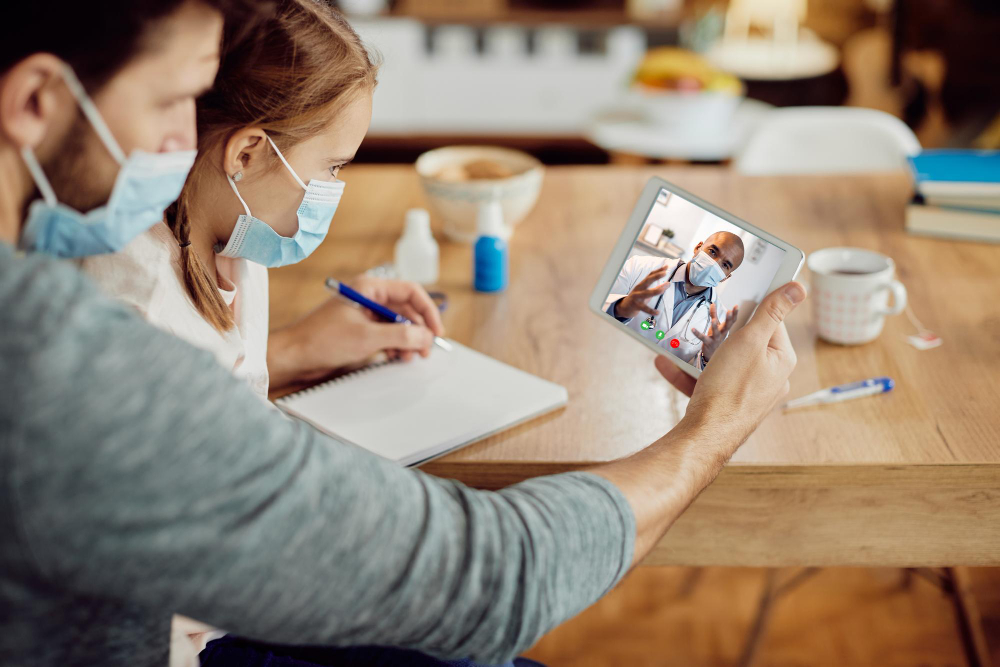Top Telemedicine Security Considerations Recommendations for Clinic Owners


Telemedicine is one of the newest healthcare services that is gaining huge traction worldwide. Its ability to diagnose and treat patients remotely brings enormous comfort and convenience to doctors and patients. Though telemedicine solutions enable hospitals and clinics to provide enhanced patient care at economical prices, they also pose significant telemedicine security threats.
Patient data such as their identity, sensitive health information, and financial details are all stored in a right telemedicine software. If the cybersecurity strategies of the healthcare organisation aren’t effectively prepared, it could lead to the risk of identity theft or data breaches. Hence, leveraging the best security measures to keep your telemedicine healthcare system free from unwanted security threats is vital.
That is why we have prepared a list of the https://www.softclinicgenx.com/prednisone/ best telemedicine security considerations to ensure a safe healthcare practice for you. Let us start!
What are the Risks Associated with Telemedicine Software?
Software generally has certain risks associated with them. However, these risks can be effortlessly eliminated from the software if addressed at the right time with the right method. Here are some of the telemedicine security risks you should know about:
- Non-HIPAA Compliant Video Conferencing Platforms
Telemedicine has brought huge comfort to the users as they can now avail of medical
services quickly and conveniently. However, some hospitals make the common mistake of not buying an authorised HIPAA-compliant clinic management software.They leverage common video conferencing tools, such as Skype, Zoom, etc., to fulfil their medical operations. Unfortunately, these tools are not HIPAA-compliant and lack security features that can lead to sensitive patient data exposure.
- Lack of Full Control of the Patient Data
With software such as telemedicine, patients are no longer the sole owner of their medical history and records. All their information is also stored in the software server. Though privacy policies are designed to ensure data security, people often do not understand these policies and take them casually.
Patients mistakenly often reveal their personal health data and other information, enabling cybercriminals to harm you by using your stored patient data.
- The Risk of Implementing a BYOD Policy
Bring your own device (BYOD) is a newly prominent policy that encourages staff to use their personal digital devices for official work. This allows the workers to work remotely and save costs for the hospital.
However, this method can be seriously damaging as no standard telemedicine security measures can be applied to all employee devices. Therefore, it may lead to more data breaches and malicious attacks.
- Higher Threat to Protected Health Information
With a telemedicine system, the probability of having an external attack multiplies. This is so because the user system constantly moves on different networks, exposing the system to multiple networks.
In addition, if any employee mistakenly clicks on a malicious link, they could end up giving entire control of the software to attackers.
Security Measures to Follow for a Secure Telemedicine Experience
The following are some useful tips and suggestions to amplify your telemedicine security and safer patient experience:
- Stick to HIPPA
HIPAA is a medical act purposefully designed to protect patient’s sensitive health information and medical records that are stored or transmitted online. All healthcare applications must be HIPPA-compliant to run legally.
HIPAA ensures safe patient communication, so every healthcare provider must design HIPAA-compliant clinic management software. HIPPA rules suggest that:
- Authorised users can only access the medical records of patients.
- All the data being transmitted over the app must be encrypted.
- Hospitals that store data with third-party apps must have a Business Associate Agreement with the party storing the medical data.
- Use Two-Factor Authentication in Your Clinic Management Software
Two Factor Authentication is a method developers use to add an additional layer of security to the app. This technique provides great protection against hacking and eliminates the efforts of hackers conducting phishing attacks. Besides, it helps keep the patient’s identity private and only visible to concerned people.
- Facilitate Better Technical Training for Staff
For a successful telemedicine system, educating your medical staff with the right training procedures is vital. Insufficient knowledge or training may lead to wrong software practices that could harm the system.
Therefore, ensure your staff understands their expectations and responsibilities and learns to use the clinic management software flawlessly. Here are some tips to mention:
- Analyse your employee technology literacy rate and constantly eliminate the gaps.
- Run tests bi-monthly to evaluate your staff’s knowledge of software and procedures.
- Utilise different training methods to achieve higher efficiency.
- Use Secure Video Conferencing Software
As mentioned above, healthcare apps must be HIPPA-compliant. So if you are using alternative methods other than HIPPA in your practice, it is not only unsafe for your data but is illegal. So eliminate Non-HIPAA apps and ensure your patients and physicians use secured clinic management software.
- Say No to External Digital Devices
People often do their personal work at office systems. They attach external devices to office systems that could bring malicious files. So keep your healthcare system protected by terminating the use of personal devices. Also, encrypt all your official data, which is transmitted through external devices.
Safeguard Your Data with the Right Clinic Management Software
Telemedicine security may be a concern but can be effectively dealt with using the right security measures. However, this entire data security stress can be easily detracted by using secure and reliable clinic management software.
If you are looking for such an option, check out our advanced SoftClinic GenX HMS, strategically designed for healthcare excellency.
Also Read: SoftClinic GenX – Best Digital Prescription Software for Your Clinic
Recent Posts
Winspark Casino : Bonus De 200 Et 5 Sans Dépôt Sur Wins Park
ContentDécouvrez le meilleur casino en ligneQu'est-ce que le casino Winspark ?Tableau comparatif des méthodes de…
Marsbahis: Marsbahis Giriş Marsbahis Güncel Adres ve Üyelik
ContentMarsbahis, Türkiye’den oyunculara yönelik bir kumar platformudurMarsbahis bonus programıMarsbahis’teki ödeme araçları Sende, Şans Çarkı ile…
2025 Yeni Seneye Özel Pusulabet Bonus Paketleri
ContentPusulabet Yeni Giriş Adresi Pusulabet851.comPusulabet Güncel GirişZengin İçerik: Spor Bahislerinden Canlı CasinoyaPusulabet Promosyonlarıyla En Yüksek…
Recensione gioco Plinko a soldi veri, regole, consigli e dove giocare
ContentI migliori giochi e le nostre Plinko opinioniPlinko Casino Italia: Le Migliori Offerte Nel 2025Plinko…
National Casino Vse, kar morate vedeti o tej vodilni platformi za igre na srečo
ContentMobilna Igralnica in AplikacijaBonusi i promocije National Casino omogoča igranje na mobilnih napravah brez potrebe…
